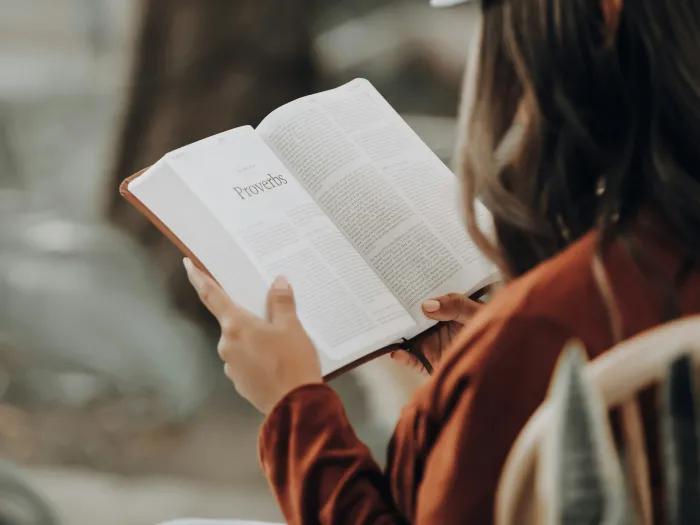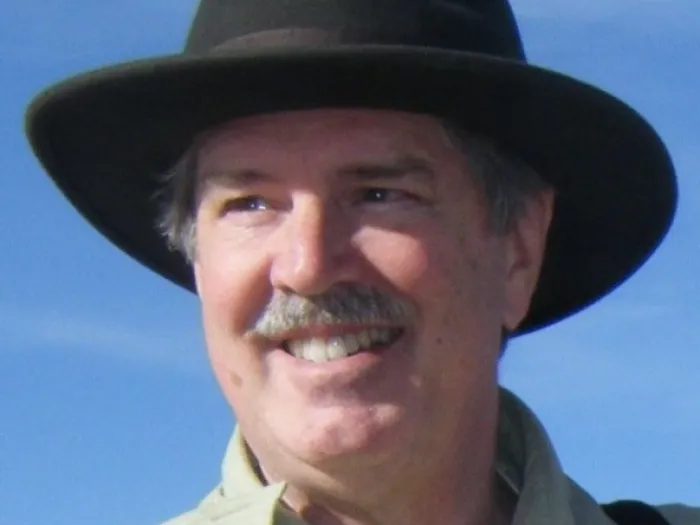Young Adult Advisory Delegates participate in General Assembly orientation
Eighty-two YAADs are gathered in Salt Lake City from across the country

The Young Adult Advisory Delegates orientation began Saturday morning led by the Rev. Katrina Pekich-Bundy and Ekama Eni.
Eni led the group in an opening mediation from Cole Arthur Riley’s book “Black Liturgies.” Eni selected a passage called “Place” as a hope to build some commonality. “Since we’re all coming from different places and being asked to do a ‘thing’ together in a new place for most of us, it was important that we felt a connection of being together in this shared space,” Eni said.
Throughout the assembly, advisory delegates help guide GA commissioners in a variety of ways.
Since few young people are likely to be elected as commissioners in many presbyteries, the category of Young Adult Advisory Delegates was created in 1970 so that those voices could be heard. The General Assembly is open to having young people in its midst, and the voices of YAADs are welcome as commissioners engage in deliberations.
In part, a YAAD’s role is to make commissioners aware of issues and ideas they might not otherwise know about. The YAADs convening for the 226th General Assembly don’t necessarily represent the future leaders of the church, but are among the leaders of today’s church.
Young Adult Advisory Delegates represent the largest number of advisory delegates at the 226th General Assembly. This year, 82 YAADs from presbyteries around the country have gathered.
Pekich-Bundy’s goal along with co-leader Eni has been to create spaces during two virtual training sessions and, during in-person gatherings, to learn together and create community.
The leaders also created optional Zoom debriefs each day after committee meetings Tuesday through Thursday and will offer them daily after plenaries as well.
Pekich-Bundy said, “Working with young adults has taught me that this generation of young adults has more wisdom and understanding than they are given credit for. When we have conversations about the state of the world, in many ways they have a deeper understanding of topics that it took me years to even partially understand. They are paying attention and listening, and this informs them so they can help shape the future of the church.”
The Young Adult Advisory Delegate orientation on Saturday, June 29, 2024, at the Hilton Salt Lake City Center. Photo by Rich Copley
Lizzy Healy of Shennandoah Presbytery asked Stated Clerk nominee the Rev. Jihyun Oh a question during the orientation. The Young Adult Advisory Delegate orientation was Saturday, June 29, 2024, at the Hilton Salt Lake City Center. Photo by Rich Copley
YAAD Elizabeth “Lizzy” Healy of Shenandoah Presbytery, who served on the Financial Resources Committee, said, “I think the most important aspect of YAADs is that we want to talk about issues that threaten to divide us — yet here we are.”
Mike Kirk, the General Counsel of the Presbyterian Church (U.S.A.), A Corporation, spoke to the group about safety and ethical concerns. He offered a warm welcome, ensuring YAADs their presence and participation in the GA process is necessary.
The Rev. Jihyun Oh, the nominee to be the next Stated Clerk of the General Assembly of the PC(USA), addressed the delegates and shared a high-level description of the office of Stated Clerk: It’s to speak to and for the PC(USA) in ecumenical gatherings and to be the pastoral voice in times of need.
Oh fielded questions that were both thoughtful and poignant. One in particular that resonated in the room sought her advice on how to discern one’s call. Oh responded, “All ordered ministry is important — not just the role of teaching elders, but also ruling elders, deacons, and congregational members are just as important. Be open to the different possibilities to how God may call you. Listen to the people who may see gifts in you that you do not see in yourself.”
Em Rau, a YAAD representing the Presbytery of West Virginia, said, “My experience at the General Assembly was very eye-opening in how the PC(USA) sees and values young people. I feel as though YAADs are seen as the future, and we are. However, I would love to see how we can be in the leadership of the present.”
You may freely reuse and distribute this article in its entirety for non-commercial purposes in any medium. Please include author attribution, photography credits, and a link to the original article. This work is licensed under a Creative Commons Attribution-NonCommercial-NoDeratives 4.0 International License.



